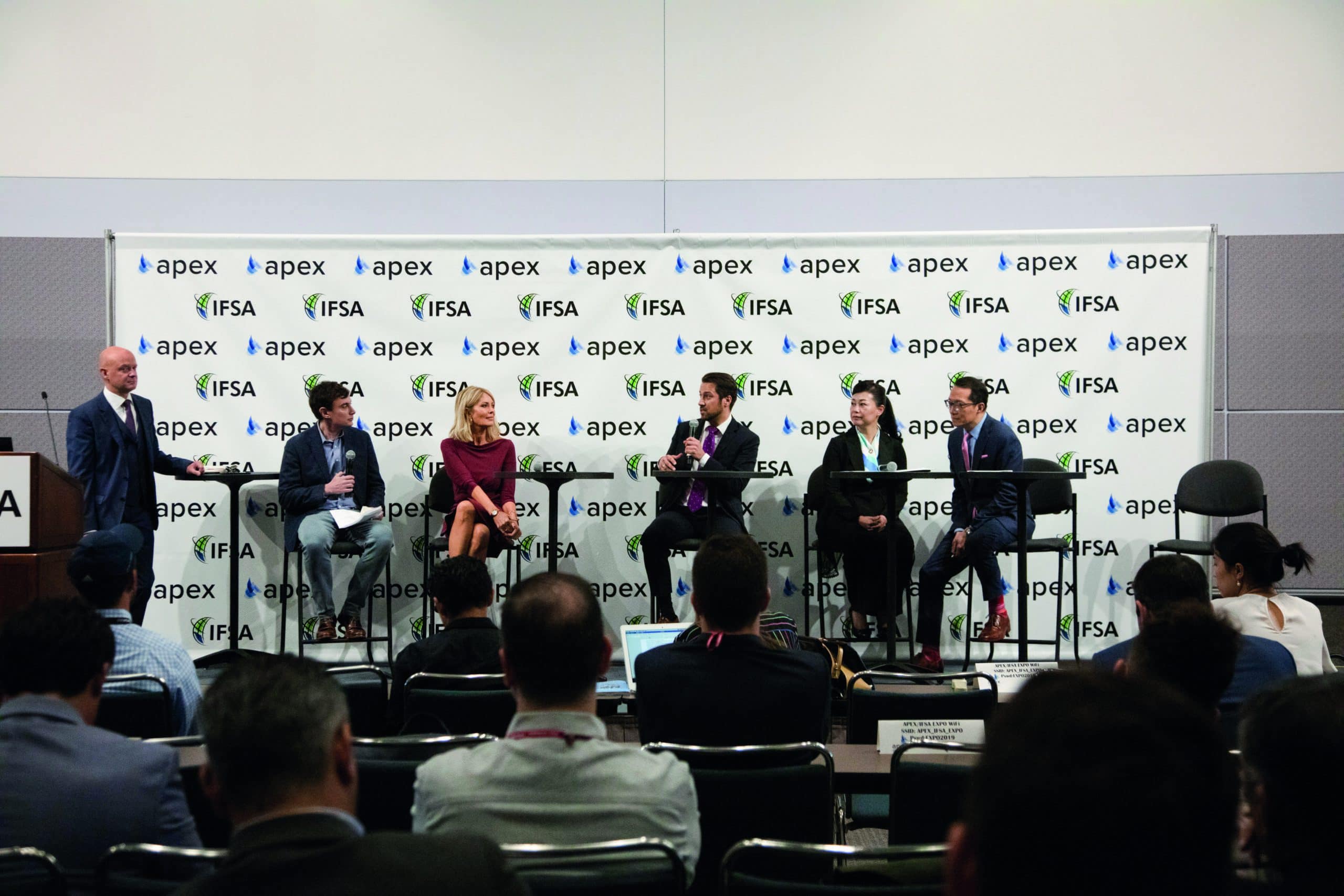Reduce, Reuse, Recycle: In-Flight Service and the “Greta Effect”
Share

Panelists during the breakout session on “Driving Airline Sustainability” agreed with moderator and Skift aviation business editor Brian Sumers that some passengers will always be price sensitive rather than eco-sensitive. However, they also seemed swept up in the “Greta Effect,” which has seen Swedish environmental activist Greta Thunberg spur people on in their efforts to combat climate change.
Sustainability doesn’t come without its obstacles. Earlier this year, Etihad Airways operated a flight between Abu Dhabi and Brisbane without any single-use plastics. According to Linda Celestino, VP Guest Services and Delivery, Etihad Airways, some of the alternatives – headphones in a brown paper bag, for instance – weren’t very attractive. “We’ve got to push the industry for completely biodegradable plastic products so that we can maintain a level of aesthetic,” she said.
“We’ve got to push the industry for completely biodegradable plastic products so that we can maintain a level of aesthetic” – Linda Celestino, Etihad Airways.
When asked about the financial implications of the flight, Celestino said swapping non-plastic items into the cabin increased the cost of the products by 25-30 percent. But Vladislav Voron, product manager, Leisure and Smart Solutions at Spiriant, argued the key to managing costs is to innovate according to the mantra “reduce, reuse, recycle,” using the spork – a piece of cutlery combining both a spoon and a fork – as an example.
Stefan List, head of Cabin Market Insights at Airbus, said that moving forward there should be transparency regarding the whole life cycle of a product that could be communicated through some kind of label used industry wide. “We don’t want to be accused of greenwashing,” he said. Chen Yizhen, chief service officer for Xiamen Airlines, said the carrier is already creating new things, such as shoe bags and slippers from cabin blankets at the end of their life cycles.
The general consensus is that it’s still early days. Voron said that much like airline data, if sustainability efforts remain siloed, they won’t work in the long term. “We need regulators and politicians to participate in order to create a truly circular economy,” he claimed.


